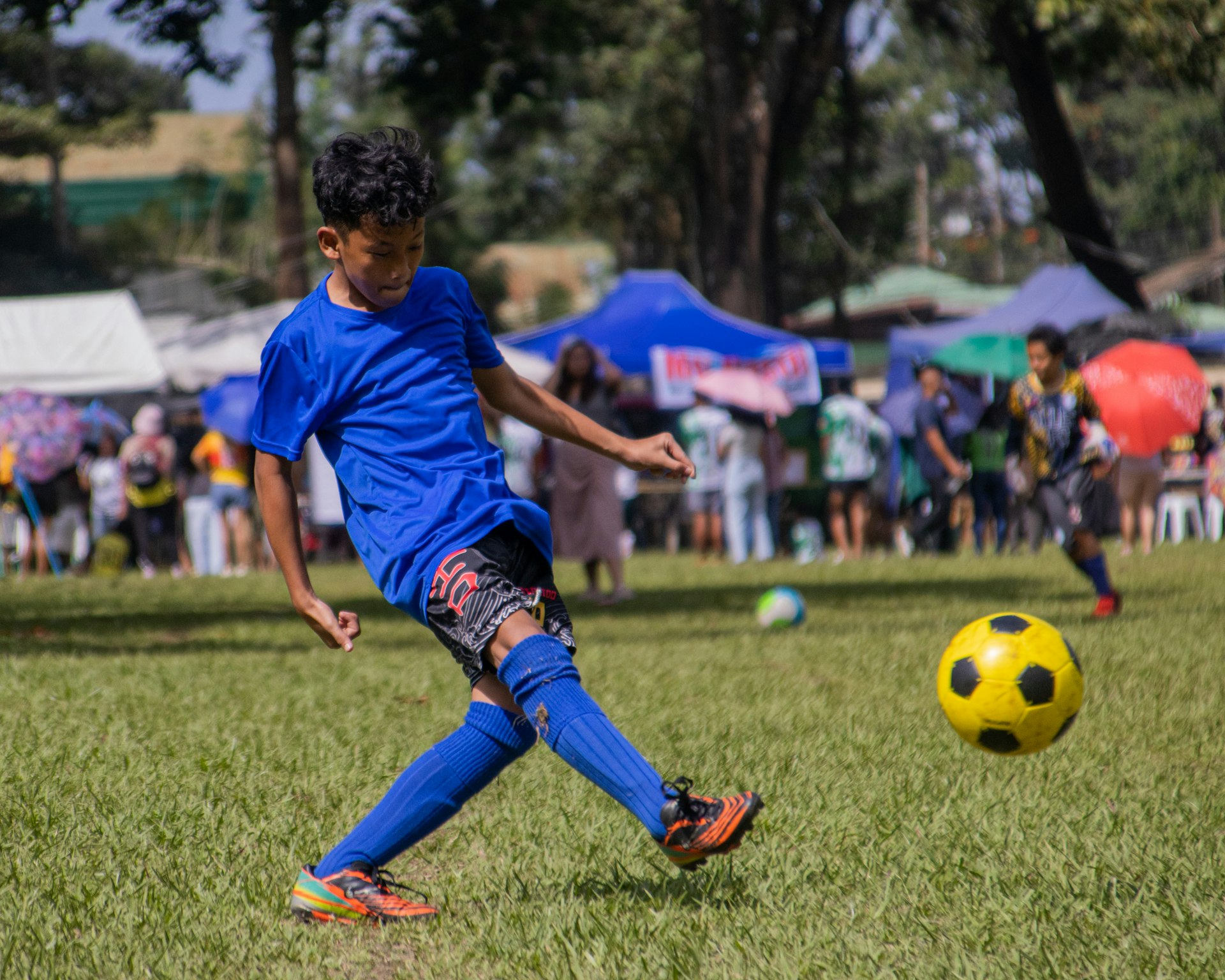Unlocking Team Potential: The Critical Role of Emotional Intelligence in Sports Leadership

Photo by Catia Climovich on Unsplash
Introduction
Sports leadership extends far beyond devising strategies or delivering motivational speeches. The most effective leaders in athletics are those who master emotional intelligence (EI), equipping themselves and their teams to thrive under pressure, foster mutual trust, and respond constructively to setbacks. Emotional intelligence, defined as the ability to perceive, understand, manage, and influence emotions, is now recognized as essential for anyone seeking sustainable success in sports leadership roles [5] .
Why Emotional Intelligence Matters in Sports Leadership
Sports environments are inherently emotional, marked by intense competition, high stakes, and frequent change. Leaders with high EI can not only manage their own responses but also guide athletes through moments of stress, disappointment, or celebration. Research shows that emotionally intelligent leaders inspire greater commitment, create more resilient teams, and drive higher performance by fostering a culture of psychological safety [1] . These leaders are adept at motivating athletes, setting realistic yet challenging goals, and maintaining team cohesion even during adversity.
The Core Components of Emotional Intelligence in Sports
Building on Daniel Goleman’s framework, five core components define emotional intelligence within sports leadership [5] :
- Self-awareness: Leaders who accurately recognize their own emotions and triggers are better equipped to make rational decisions and avoid impulsive reactions during games or team meetings [3] .
- Self-regulation: The ability to control emotional impulses ensures leaders remain calm, composed, and adaptable in high-stress scenarios, setting a powerful example for their teams [4] .
- Motivation: Emotionally intelligent leaders are driven by internal values and goals, fostering a culture of continuous improvement and resilience among athletes [1] .
- Empathy: Understanding and validating the emotions of athletes builds trust, strengthens relationships, and improves communication, all of which are essential for effective coaching [5] .
- Social skill: Influential leaders can resolve conflicts, foster collaboration, and create a positive team environment where athletes feel valued and supported [5] .
Real-World Applications and Examples
Consider the case of a basketball coach facing a team on a losing streak. A leader focused only on tactics might overlook signs of athlete burnout or anxiety. However, an emotionally intelligent coach would recognize these emotional states, opening a dialogue with players and adapting training or support accordingly. This approach can restore morale, enable honest communication, and help the team regain focus for future games [2] .
In professional football, quarterbacks often serve as on-field leaders. Their ability to stay composed under pressure, communicate clearly with teammates, and bounce back from mistakes directly correlates with their emotional intelligence-and often, their team’s success [3] .
Implementing Emotional Intelligence Strategies
Developing emotional intelligence is an ongoing process. Sports leaders can take the following steps to cultivate these skills:
- Self-reflection: Regularly assess your emotional responses to wins, losses, and team dynamics. Journaling or feedback from trusted colleagues can help identify patterns and areas for growth.
- Active listening: Focus on truly understanding athletes’ perspectives without interruption. This builds empathy and strengthens relationships.
- Stress management techniques: Incorporate mindfulness practices, such as deep breathing or visualization, to remain composed during high-pressure moments.
- Conflict resolution training: Equip yourself with strategies for addressing and resolving disagreements within the team constructively, maintaining a positive environment.
- Professional development: Seek out workshops, coaching seminars, or mentorship opportunities focused on emotional intelligence in sports. Many national sports coaching associations and universities offer such programs; you can search their official websites or contact local sports organizations for information on upcoming opportunities.
Overcoming Challenges in Emotional Intelligence Development
Some leaders may encounter obstacles, such as reluctance to discuss emotions or a focus on traditional, performance-centric models. Overcoming these barriers requires a shift in mindset, recognizing that emotional intelligence complements technical and tactical skills. Leaders can model vulnerability by sharing their own experiences, encouraging open dialogue, and normalizing conversations about mental well-being [2] .
For organizations with limited resources, consider collaborating with local mental health professionals or university sports psychology departments to access training and support for coaches and athletes. If unsure where to begin, start by searching for “emotional intelligence in sports training” or “sports psychology workshops” through reputable educational institutions or national sports associations.
Alternative Approaches and Additional Resources
While formal training programs are valuable, peer learning is also effective. Creating mentorship networks within sports organizations allows experienced leaders to share insights and strategies for building emotional intelligence. Online communities, professional coaching forums, and published case studies can provide further guidance. Sports leaders may also benefit from reviewing literature and resources from established organizations such as the Association for Applied Sport Psychology, which offers research articles and practical toolkits for coaches and managers.
Key Takeaways
Emotional intelligence empowers sports leaders to build resilient teams, foster trust, and drive consistent high performance. Through self-awareness, empathy, and effective communication, leaders can transform both individual athletes and team cultures.
To access emotional intelligence training or support, you can:

Photo by Joppe Spaa on Unsplash
- Contact your national sports coaching association for recommended programs and seminars.
- Search for “sports leadership emotional intelligence workshops” through accredited universities or professional organizations.
- Consult with local sports psychologists or mental health professionals for tailored team training.
- Engage in self-study using verified resources from reputable sports psychology organizations.
By embracing emotional intelligence, sports leaders not only strengthen their teams’ performance but also cultivate a positive, supportive environment where every athlete can excel.
References
- [1] Telecoming (2023). The Power of Emotional Intelligence in Sports.
- [2] Amplifying Performance (2024). The Role of Emotional Intelligence in Sports Leadership.
- [3] Coach’s Clipboard (2023). Emotional Intelligence Can Help Athletes in Sports.
- [4] Human Kinetics (2021). Emotional Intelligence in Sport Leadership.
- [5] Association for Applied Sport Psychology (2023). Improved Coaching through Emotional Intelligence.
MORE FROM dealdetectivepro.com













